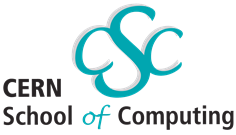 Antonio Pina
Antonio PinaAntónio Pina has a 5-year degree in Electrical and Electronic Engineering (Digital Systems & Computers) at University of Porto, 1983, a MSc on Informatics, 1989, and a PhD on Computer Engineering, 1998, at University of Minho.
He is a lecturer at the Department of Informatics, Engineering Group Computer, of University of Minho, particularly involved in the development and deployment issues related to grids platforms and clustering, being co-responsible for SeARCH infrastructure that supports R&D projects in Computer Science, Physics and Math at the University of Minho.
He has R&D work and publications on Grid computing, high-performance computing, computing models, high-performance communication libraries and distributed data structures. As an active researcher he participated in Grid related projects such as FP6-CYCLOPS, FP7-EELA2/ GISELA, FCT-CROSS-Fire and FCT-Aspect Grid and other projects that combine traditional multi-core CPUs with accelerator devices and provide distributed OpenCL, such as: FCT-IGIDE and FCT-PERFORM.
More recently he became a member of LIP, a scientific and technical association of public utility whose activities are developed in the framework of large collaborations at CERN and Grid facilities in Europe. In this context investigation is focused on optimizing systems behavior using application profiling information.
 Vitor Oliveira
Vitor Oliveira
Vítor Oliveira is member of the Laboratório de Instrumentação e Física Experimental de Partículas (LIP) research laboratory and the IT director of S. João National Theatre, at Porto. As a computer scientist his main research interest are on high-performance computing and application behavior analysis, applied to optimizing storage patterns for large-volume data analysis applications from on ATLAS experiment. He has also been a consultant on the design and deployment of advanced computing infrastructures, including several computing clusters. His alma mater is University of Minho, where he graduated in Systems Engineering in 1997.
 António Onofre
António Onofre
Antonio Onofre is a Tenured Associate Professor of physics at the University of Minho and a researcher of LIP (Laboratório de Instrumentação e Física Experimental de Partículas). He obtained his PhD in Physics from the University of Coimbra working in the CP-LEAR experiment at CERN. He was Professor at the Portuguese Catholic University and visiting Professor at the Faculty of Sciences and Technology, University of Coimbra. Following his PhD he worked in the DELPHI experiment at LEP and is currently a member of the ATLAS collaboration. He developed his scientific research work in several projects in the fields of astroparticle and particle physics and he is particularly involved in phenomenological studies at the LHC, with particular focus on the study of the properties of the top quark, the Higgs boson and search for new particles at the LHC. He is presently the head of LIP at the University of Minho.
 Nuno Castro
Nuno Castro
Nuno Castro graduated in Physics by the University of Coimbra in 2000, received his Master in Physics from Instituto Superior Tecnico in 2004 and completed his PhD in Experimental Physics in 2008 at the University of Coimbra. Between 2000 and 2005 Nuno Castro was a member of the DELPHI Collaboration (Geneva, Switzerland) at the European Organization for Nuclear Research (CERN), where he was integrated in the Exotica Research line, being responsible for the search for new fourth generation quarks in different topologies. After finishing his PhD in 2008, Nuno Castro was a post-doctoral researcher at the High Energy Physics group at the University of Granada (Spain), where he worked in the development of phenomenological models and data analysis tools in close collaboration with the theoreticians of the group. A close collaboration with theoreticians and experimentalists from Goettingen (Germany), Granada (Spain), LBNL (USA) and Yale (USA) was developed, producing the simulation and data analysis tools which were used in the analysis of the LHC data. In 2010 Nuno Castro returned to Portugal as a post-doctoral fellow funded by FCT and integrated a new group of the Laboratório de Instrumentação e Física Experimental de Partículas (LIP) at the University of Minho, participating actively in the ATLAS Collaboration at CERN and taking part of the data analysis of the run 1 phase of the LHC. NC is presently responsible for the search of new heavy vector like quarks and responsible for the search for new physics in the Portuguese ATLAS group. Since 2014 Nuno Castro is a Researcher at LIP. Between 2012 and 2014 he was convener of the top quark properties group of the ATLAS Collaboration. Nuno Castro is co-author of more than 350 papers published in peer-reviewed international journals. He was invited to give seminars in China, Germany, Spain and Portugal, and presented his research work in several international conferences. Nuno Castro is also participating in the development and consolidation of a new LIP delegation in the University of Minho, having organized recently a PhD School and a Workshop in the context of the IDPASC network, and participating regularly in outreach sessions both in the University and at local High Schools.
